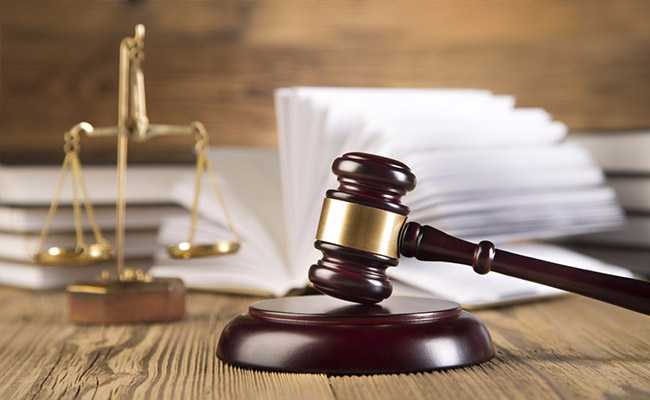Separate US federal courts
The president of each court plays a key leadership role in overseeing and coordinating the efficient running of the court. Although the chairman is usually responsible for overseeing the day-to-day running of the court, important decisions on matters of principle are made collectively by the judges of a given court.
By statute law, the Judicial Council is empowered to issue orders to promote accountability and “the efficient and timely administration of justice within its district”.
The chief administrative officer of each court is its secretary. The secretary manages the extrajudicial functions of the court in accordance with the general principles determined by the court, and reports directly to the court in the person of its chairman. Here are just a few of the many duties of a secretary:
- Keeping court records and journals
- Payment of all fees, fines, expenses and other money collected to the US Department of the Treasury
- Management of the jury system in court
- Provision of translators and court stenographers
- Distribution of official court notices and subpoenas
- Ensuring the work of auxiliary services of the court
U.S. District Federal Judiciary Councils

At the regional level, each district’s “district judicial board” oversees the administration of the courts located in its geographical district.
Each District Judicial Council is composed of a Chief District Judge acting as Chairman and an equal number of other District Judges.
The Judicial Council oversees numerous aspects of the appellate and district courts. He is authorized by statute to issue orders to promote accountability and “the efficient and timely administration of justice within his district.
” In addition to its primary responsibility to ensure the efficient operation of individual courts, the Judicial Council is responsible for reviewing local court rules for compliance with national procedural rules, approving district court work plans in areas such as equal employment opportunity and jury selection, and reviewing complaints of improper judges’ actions.
Each Judicial Council appoints a “District Superintendent” who works closely with the Chief Justice of the District to coordinate a wide range of administrative matters in the District.
U.S. Judicial Conference
The U.S. Judicial Conference is the nationwide policy-making body for the federal courts. The Chief Justice of the United States presides over the Judicial Conference, which includes 26 other members, including the Chief Justice of each Court of Appeals, one District Court Judge from each regional district, and the Chief Justice of the Foreign Trade Court.
The Judicial Conference operates through subject matter committees to make recommendations on national judicial policy and legislation in all aspects of the administration of federal courts.
There are Committees on Budget, Rules of Practice and Procedure, Judicial Administration and Case Management, Criminal Law, Bankruptcy, Judicial Resources (Judges and Human Resources), Automation and Technology, and Codes of Conduct.
Administrative Office of the United States Courts
The Administrative Office provides federal courts with a wide range of legislative, legal, financial, automation, management, administration, and program support services.
The Administrative Office, which is an agency of the judiciary, is responsible for implementing the policy of the U.S. Judicial Conference. The primary responsibility of the Administrative Office is to provide staff support and advice to the Judicial Conference and its committees.
The many responsibilities of the Administration Office also include:
collecting and presenting judicial statistics, developing budgets, conducting research and evaluations of judicial activities and programs, providing technical assistance to the courts, preparing training programs and strengthening links within the judiciary, as well as with other branches of government and with the public.
The Director of Administration, appointed by the Chief Justice of the Supreme Court in consultation with the Judicial Conference, serves as the chief administrator of the federal courts.
Congress assigned many of the administrative responsibilities of the judiciary to the director. However, realizing that the courts can make better business decisions based on local needs, the director has over the past few years delegated responsibility for many administrative matters to individual courts.

This concept, known as “decentralization”, allows each court to operate with considerable autonomy and good governance in accordance with political decisions and guidelines defined at the regional and national levels.
Federal Judicial Center
The Federal Judicial Center provides training and research for the federal judiciary in a wide range of areas, including court administration, case management, budget and finance, human resources, and forensic technology.
It develops career guidance and continuing education programs for judges and other judicial personnel, including seminars, training materials for use by individual courts, monographs and handbooks, as well as programs using audio and video materials and interactive learning tools.
The Center conducts research into the activities of the courts and submits to the Judicial Conference its recommendations for improving the administration and management of federal courts.
The Center is overseen by a board of directors, which includes the Chief Justice of the Supreme Court, the Director of the Administrative Office, and seven judges elected by the Judicial Conference.
Judicial Commission on Interdistrict Litigation
The Inter-District Litigation Panel has the authority to refer cases that are pending in different districts but involve common issues of fact (for example, mass tort claims from plane crashes, lung tubes, or asbestos) to one district for consensual or consolidated pre-trial proceedings.
The commission consists of seven judges of the courts of appeal and district courts appointed by the chairman of the Supreme Court.
